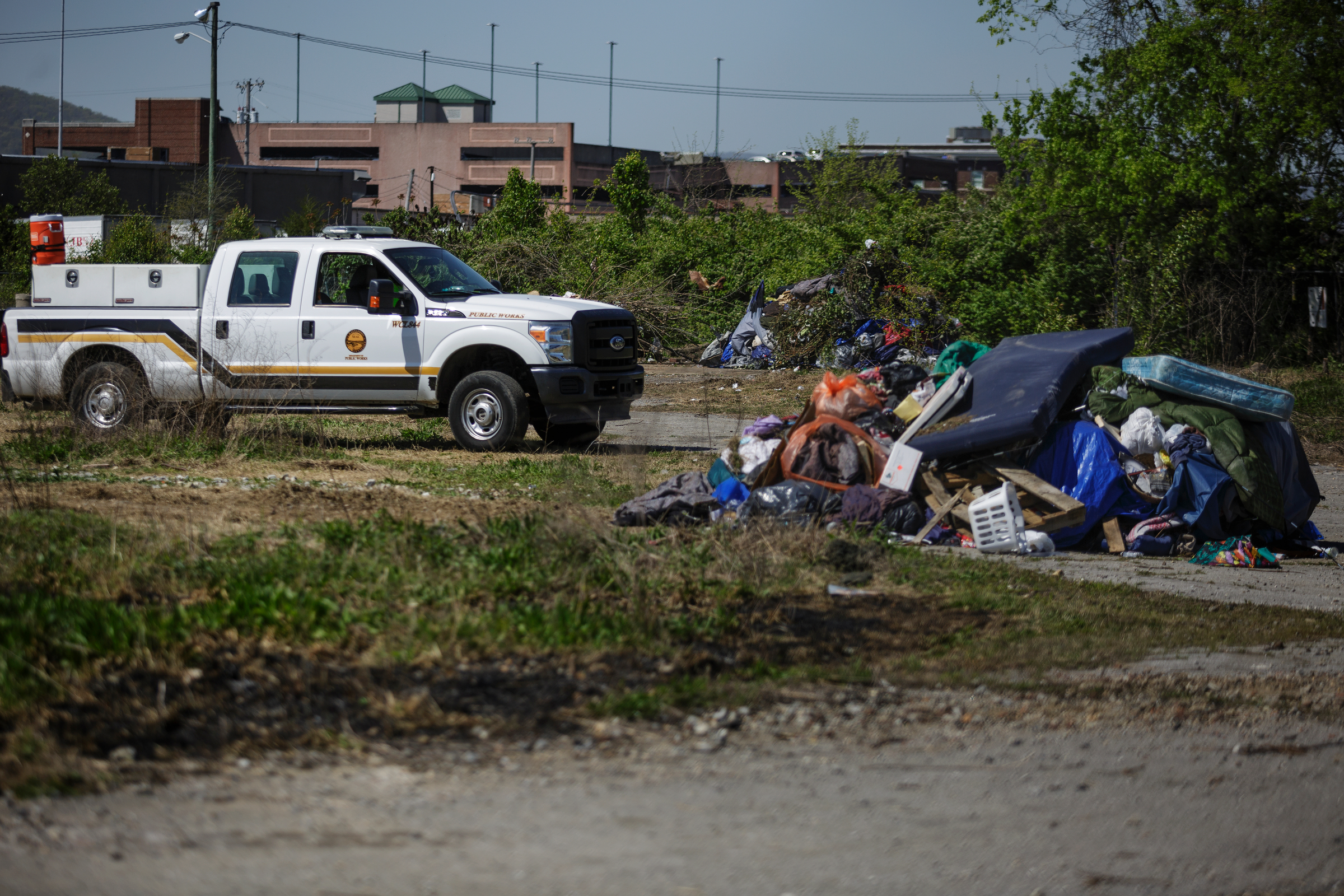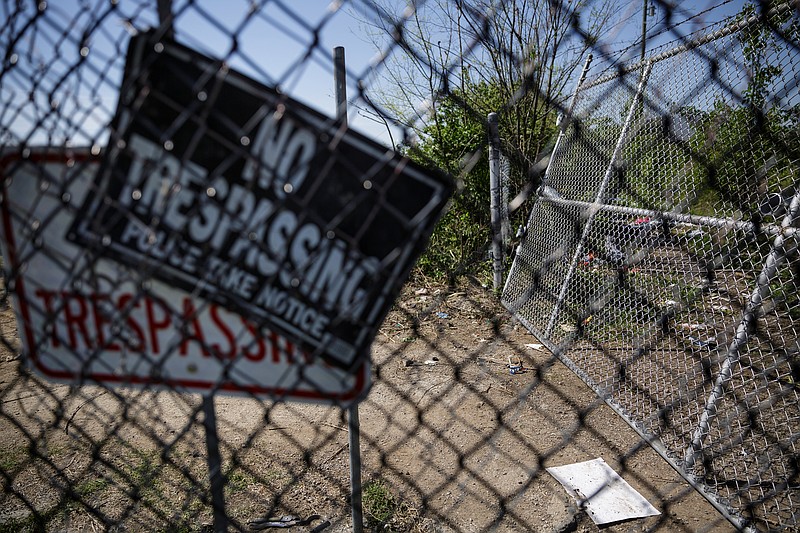 A Chattanooga Public Works truck drives through the former site of a homeless encampment on city-owned property behind the municipal wellness center on East 11th Street on Thursday, April 12, 2018, in Chattanooga, Tenn. The camp's residents were removed from the site because the property is a toxic brownfield. Out of 130 residents counted in the camp, 80 have applied for housing through Chattanooga Housing Authority and 8 have been approved, according to Twitter posts by Mayor Andy Berke's deputy chief of staff Kerry Hayes.
A Chattanooga Public Works truck drives through the former site of a homeless encampment on city-owned property behind the municipal wellness center on East 11th Street on Thursday, April 12, 2018, in Chattanooga, Tenn. The camp's residents were removed from the site because the property is a toxic brownfield. Out of 130 residents counted in the camp, 80 have applied for housing through Chattanooga Housing Authority and 8 have been approved, according to Twitter posts by Mayor Andy Berke's deputy chief of staff Kerry Hayes.Employees at the Chattanooga Housing Authority still are working to accommodate dozens of people nearly two weeks after more than 100 homeless men and women had to clear out of a tent city on East 11th Street.
Some had been living there for months, while others had called it home only for a few days, but city officials announced earlier this month that the group needed to vacate the lot because the soil is hazardous to human health as a result of it being used for decades as a dump for industrial waste. Of particular concern are the remaining contaminants from a gasification plant that polluted the area with coal tar and foundry sand.
Staffers in Chattanooga Mayor Andy Berke's office have since coordinated with a number of local agencies that offer support services for homeless people to connect them with permanent housing.
The city also provided $15,000 in emergency funds to the Chattanooga Community Kitchen to reopen its emergency shelter for an additional two weeks to house tent city residents while they find long-term housing. Those two weeks ran out this weekend and, so far, 13 people have been placed in homes.
"The No. 1 goal we had was to ensure folks were no longer exposed to harmful contaminants, and last week we were successful in moving people off the property without incident," said Sam Wolfe, the city's homeless program coordinator. "In addition, many of the people are able get placed into housing or shelter that did not have the same opportunity when they were staying on the site."
He said the effort would not have been possible without partners including Homeless Healthcare, the Homeless Coalition, Metropolitan Ministries, Family Promise, Chattanooga Rescue Mission and the Community Kitchen, which all helped ensure there was adequate outreach and follow-up with people in the camp.
Jens Christensen, executive director of the Community Kitchen, said his organization documented 135 residents from the tent city, but not all of them wound up sleeping in the shelter over the last two weeks.
As of Thursday, the shelter had been open for 13 nights, Christensen said, hosting between 39 and 90 people each night. The shelter averaged 59 people a night and has tallied "770 bed nights, so far," he said.
"We've also had outreach workers that have been working and volunteers that have been working to help people relocate to other campsites that are dispersed."
Leaders at the Chattanooga Housing Authority, the agency in charge of processing applications for permanent housing, said the effort to relocate the residents of the tent city has gone well. Betsy McCright, executive director of the agency, said they're treating tent city occupants preferentially by moving them to the top of the waiting list.
The authority has processed 50 of 88 total applications and housed 12 people. McCright said she's hopeful another 13 units will become available in the next two to three weeks, but there are several barriers that must be overcome in housing homeless people, not the least of which is a dearth of affordable housing.
"Every person is different, every situation is different. Not everyone who [was in] tent city applied for housing," she said. "The bricks and mortar is only one piece of it. It doesn't take into consideration all the issues that are faced by a family."
She said the people relocating from tent city are not required as a condition for housing to coordinate with case managers or counselors who might connect them with support services, but she believes such coordinators are integral to the process of assisting people who need housing.
"A lot of times, those issues are really hard to navigate," she said. "If you're a single mom with four kids coming out of homelessness, you've got a lot on your plate, so having that case manager to help you along the way is very important."
"I'm hopeful that there will be people who walk with them along this journey."
Contact staff writer Emmett Gienapp at egienapp@timesfreepress.com 423-757-6731. Follow him on Twitter @emmettgienapp.
